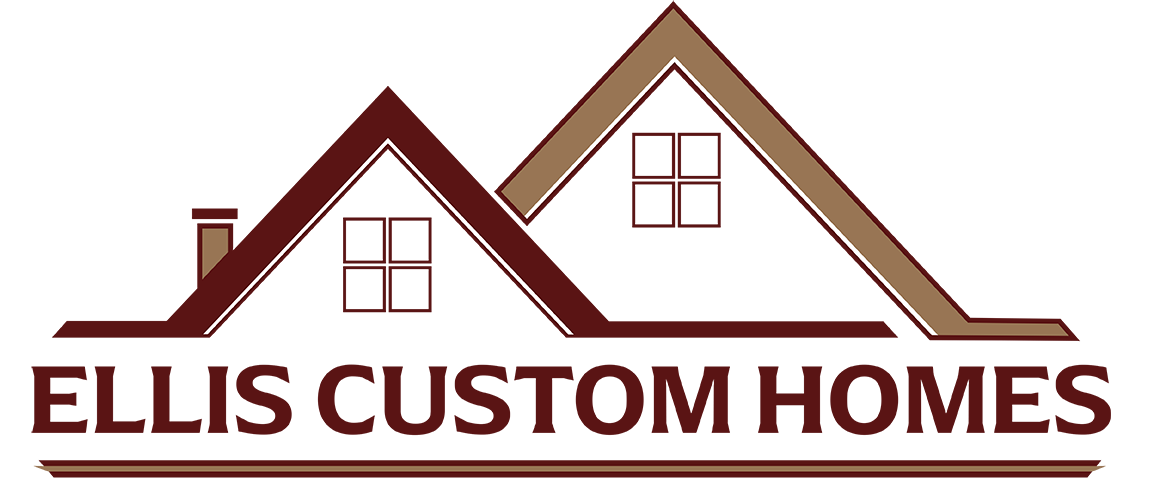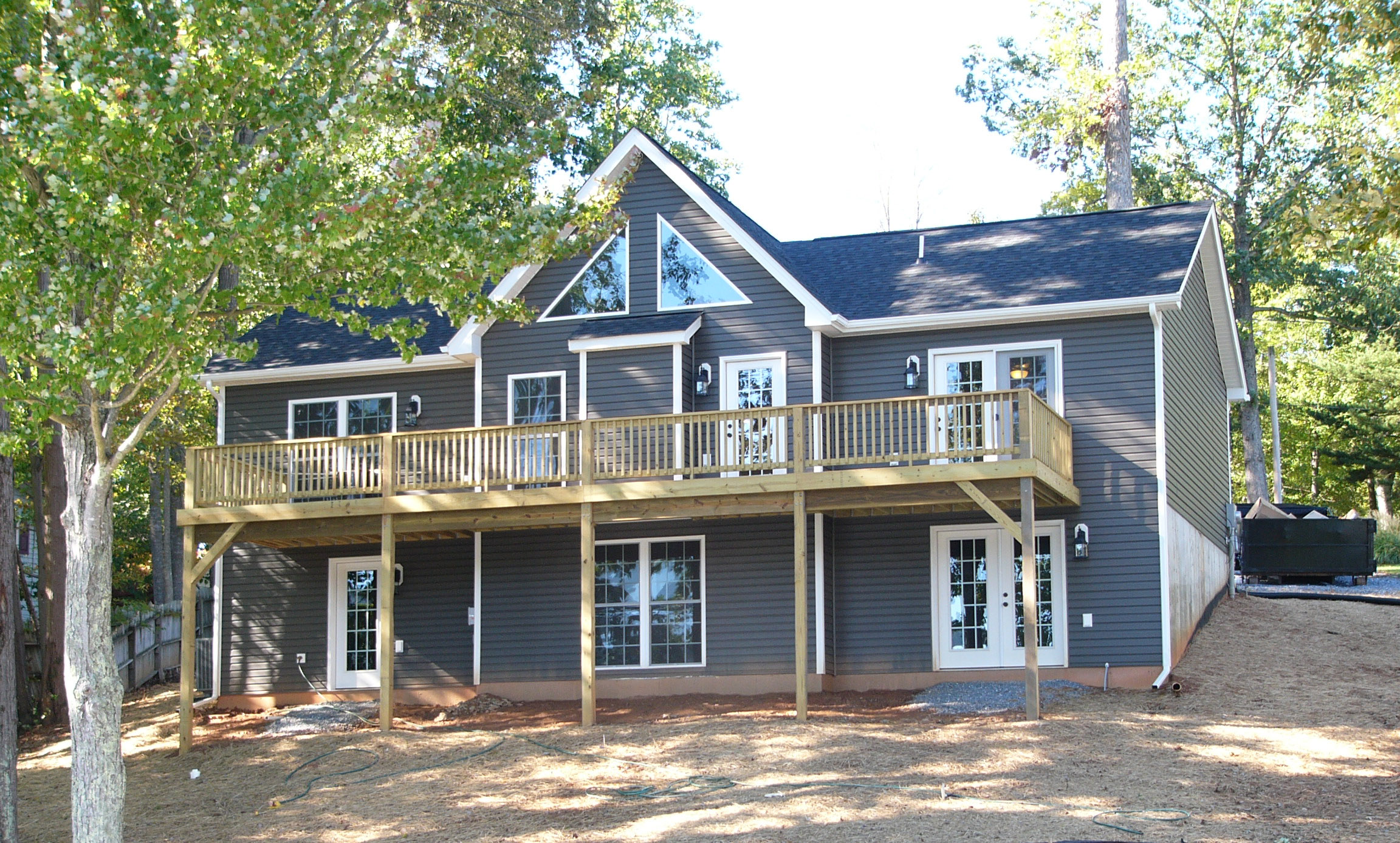Choosing the right building lot is one of the most important aspects of building a custom home and is something that can have a significant effect on your budget. This article will go over some of the key considerations for selecting a lot, some of the major risks and ways to mitigate them.
Consideration 1: The Lot’s Slope
An ideal lot has a gradual downward slope, from front to back. This level and direction of slope has several advantages. It allows for the easiest drainage of water away from the home, while also making it easy to incorporate a walk-out basement. Insufficient drainage can lead to water pooling, which can result in problems with a host of items including with the home’s footers and foundation, its basement, as well as walkways and landscaping.
Steep lots
Lots that are steep in slope create different issues than those that are flat. Steep lots, such as those frequently found around Smith Mountain Lake, can significantly increase foundation and excavation costs by requiring additional earth work and concrete. Depending on the steepness of the lot, there can also be additional cost for concrete pump trucks, as standard concrete trucks may not be able to get close enough to pour the footers directly. Steep lots frequently have narrow access to the site. This can sometimes limit the ability for multiple contractors to access the lot at same time, which can increase build time.
Flat lots
Flat lots typically carry higher excavation costs as they may require significant grading work to ensure water runs adequately away from the house. Additionally, if the walk-out basement is desired, a significant amount more of earth will need to be removed to make it possible.
Consideration 2: Well & Septic / Sewer & Water
The home’s waste disposal system and its water are critical aspects. If the lot is closer to a larger population area it may have access to public water and sewer. If it is out further, or simply in an area without public services, it will require a well and septic.
Well & Septic
Wells are less frequently an issue than septic systems, and it can be difficult to verify water availability prior to actually drilling the well. The more critical concern is the septic, and to be able to build a home on any lot, it must pass a percolation or perc test, which measures the water absorption rate of soil. If the soil does not perc, then you may have considerable difficulty building a house on the lot, if one can be built at all. We advise anyone considering the purchase of a lot to make their offer contingent on the soil passing a perc test for a standard gravity-fed septic system. This is important as a building lot may perc but for an engineered system. Standard septic systems currently cost around $8,000, whereas engineered systems can run upwards of $25,000 or more – a considerable increase in cost.
Water & Sewer
Building lots near cities or towns frequently have public access to water and sewer. In this scenario, the homeowner is responsible for running any water and sewer lines from their home to the nearest point of connection into the public systems. There are also hook-up fees charged, which vary greatly from one county and town to the next. Typically connecting into public water and sewer costs less than having to install a well and septic. Exceptions to this rule are when the distance to the nearest public line is considerable. In this case, as long as the lot percs for a septic system, installing a septic system may be a less costly option.
Whether it’s a well and septic or public water and sewer, the key thing is to understand as much as possible the associated costs for these items before purchasing any lot.
Consideration 3: Lot Restrictions & Restrictive Covenants
If you are considering purchasing a lot in any development or neighborhood with an association, it is absolutely critical to carefully review any lot restrictions or restrictive covenants that are in place. It is not uncommon for items to be required that limit the look and style of a house, or that require specific materials or features that may significantly increase cost or again change the look of the custom home you envision. We cannot stress enough the important of having a firm understanding of the association, its covenants and its approach to new construction. This can prevent a lot of problematic surprises down the road.
For people interested in building around Smith Mountain Lake, the maze of associations and their covenants can be a challenge to navigate. Having built many homes there, Ellis can frequently offer first-hand knowledge that can be useful in evaluating a potential lake lot.
Protect yourself from headaches
Many builders, including Ellis, are willing to inspect a lot that a customer may be seriously considering purchasing, and advise them on potential building challenges. In fact, it’s not uncommon for prospective buyers to even make their offers contingent upon their builder’s favorable review of the lot. Obviously, the builder can only give you their opinion based on their experience in the area and on what they can see above the surface, but their inspection can significantly lower your risk of issues.

